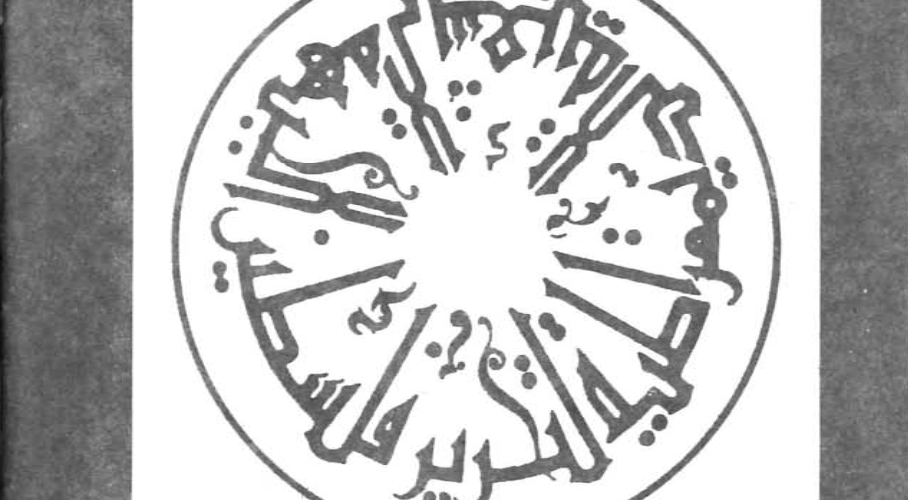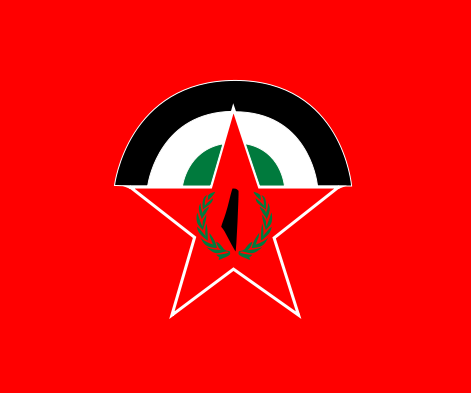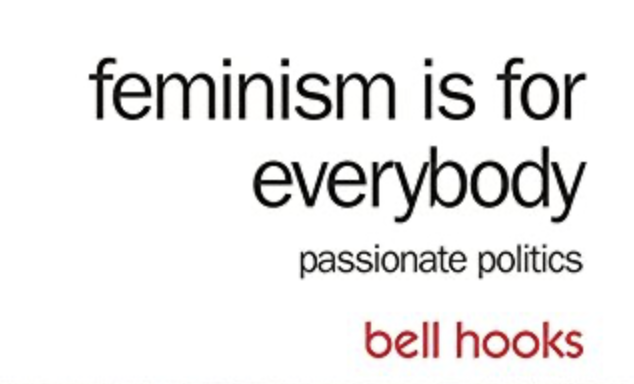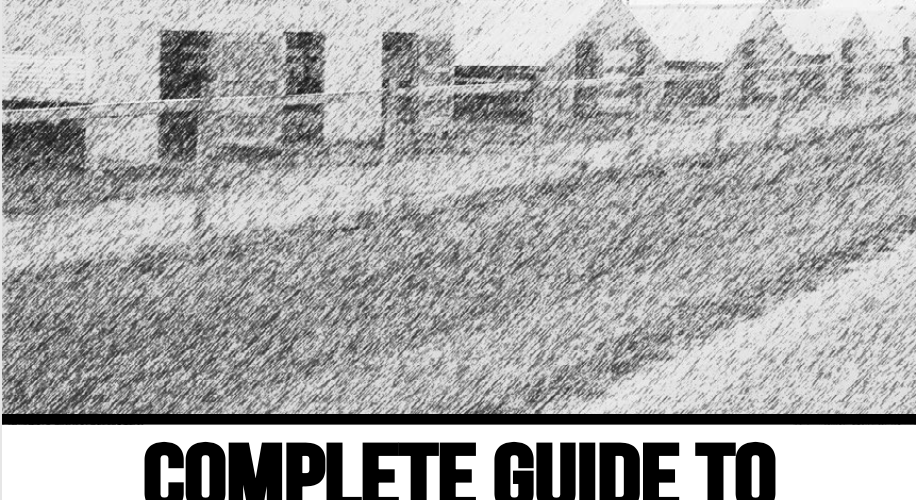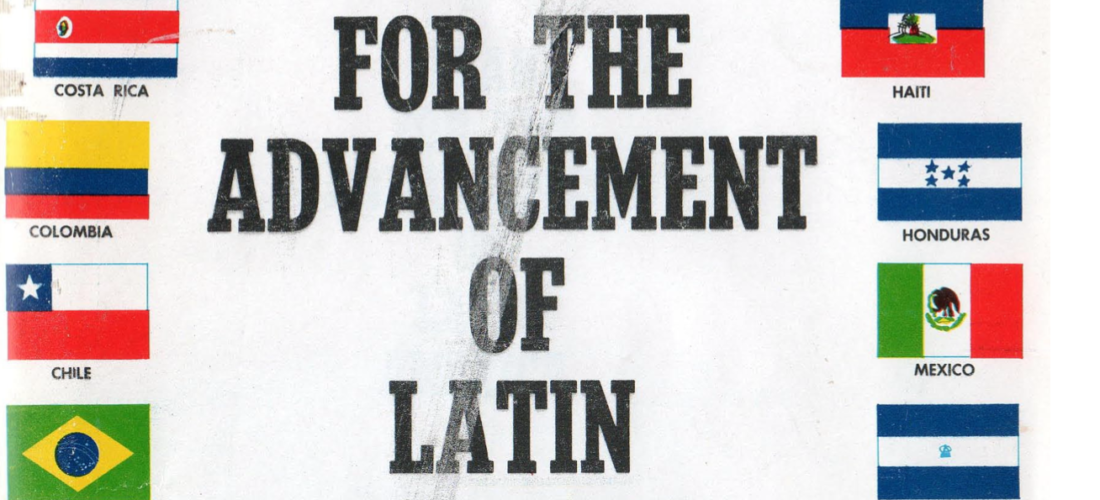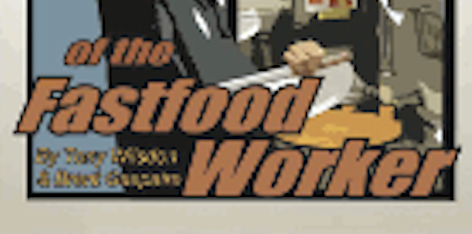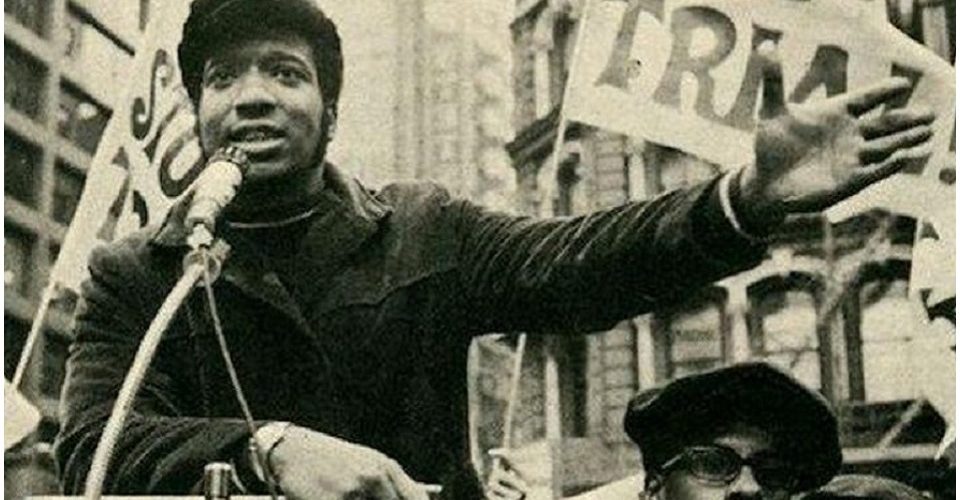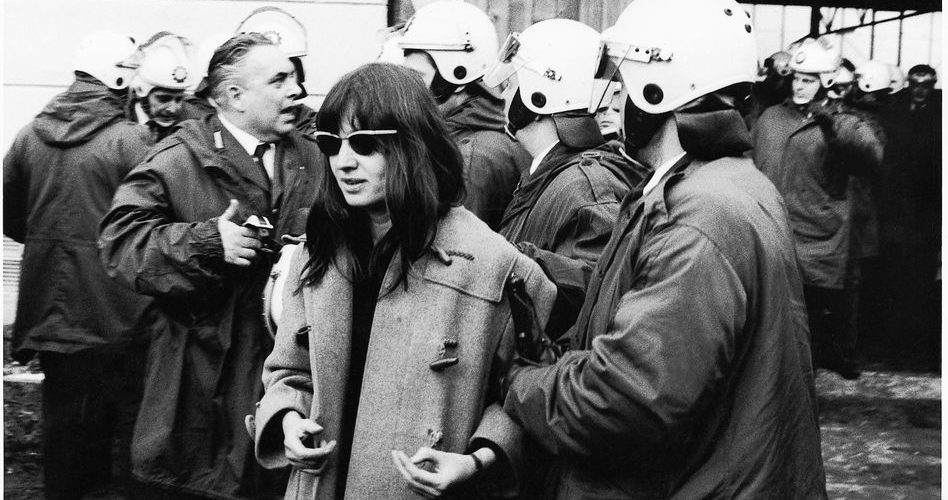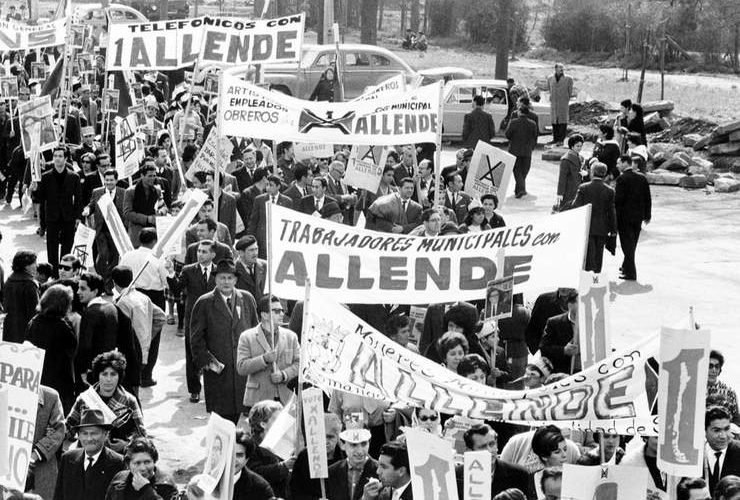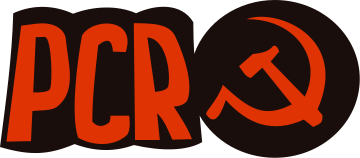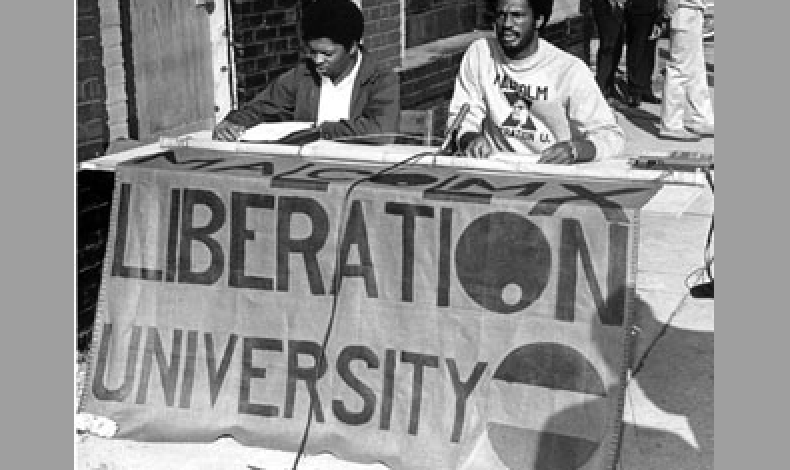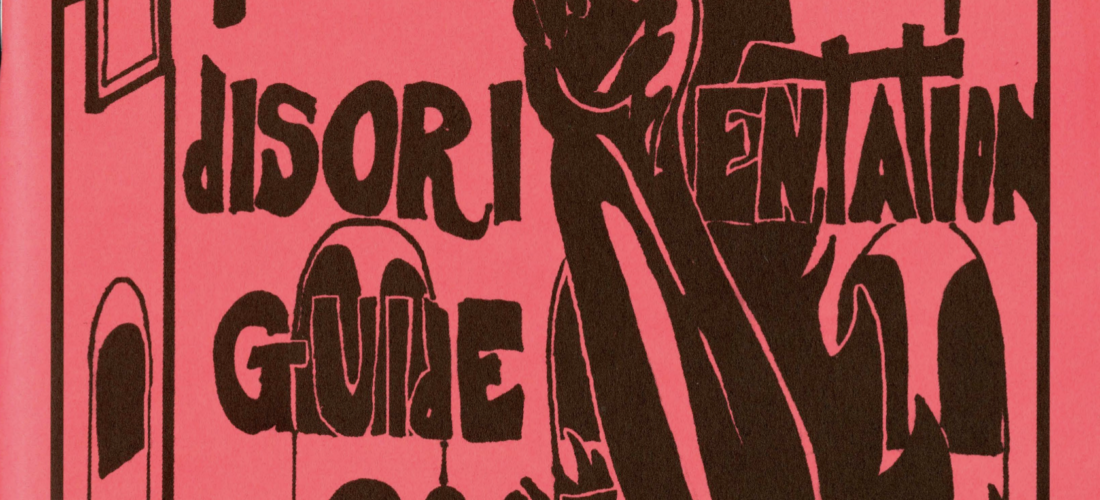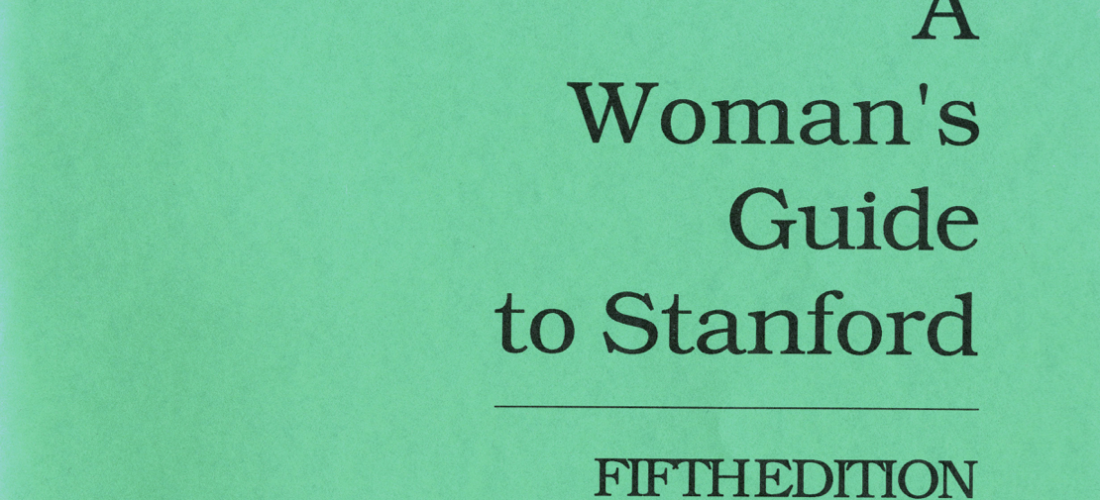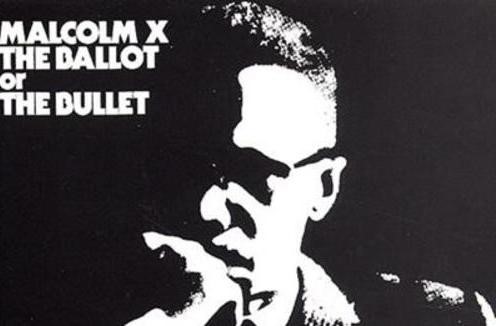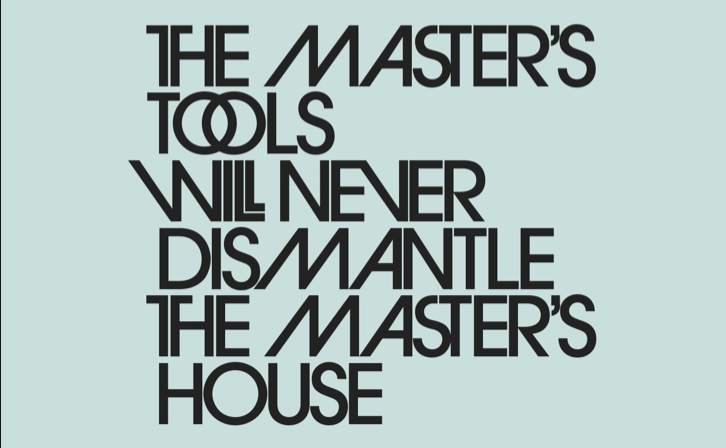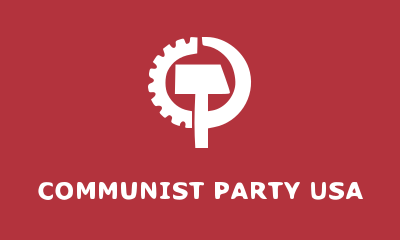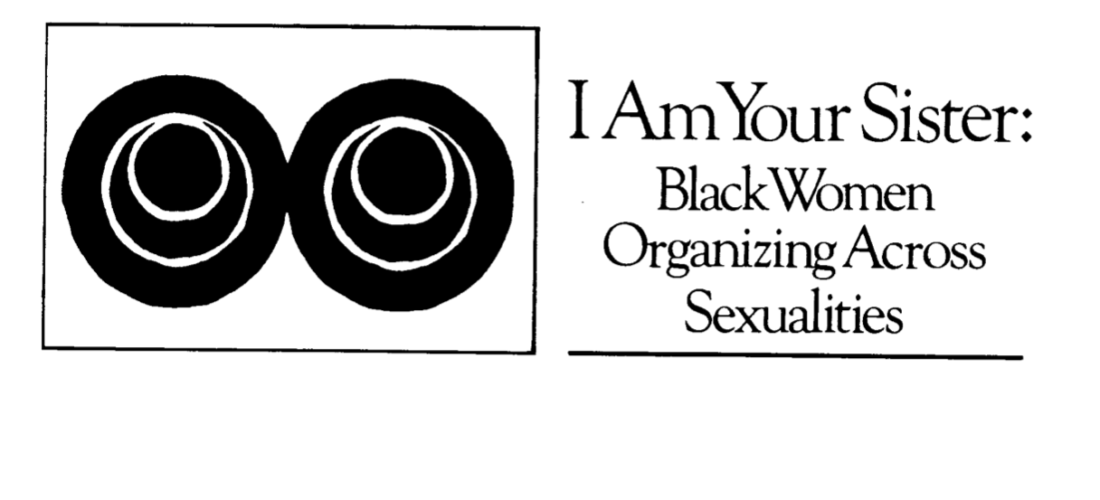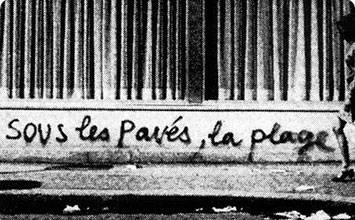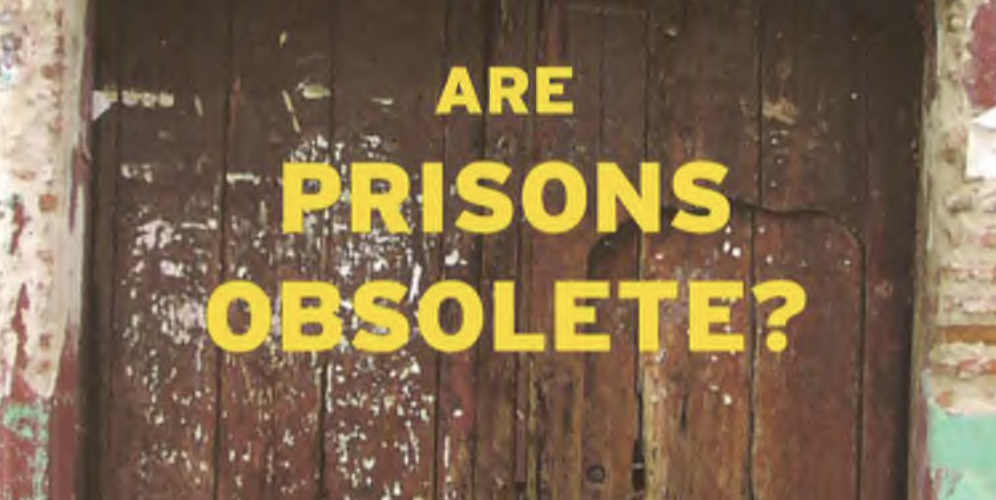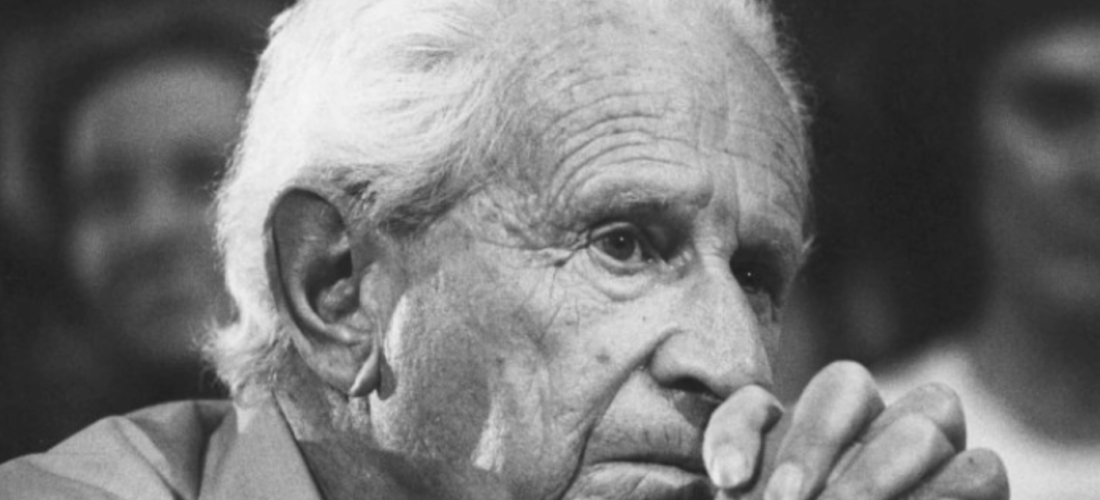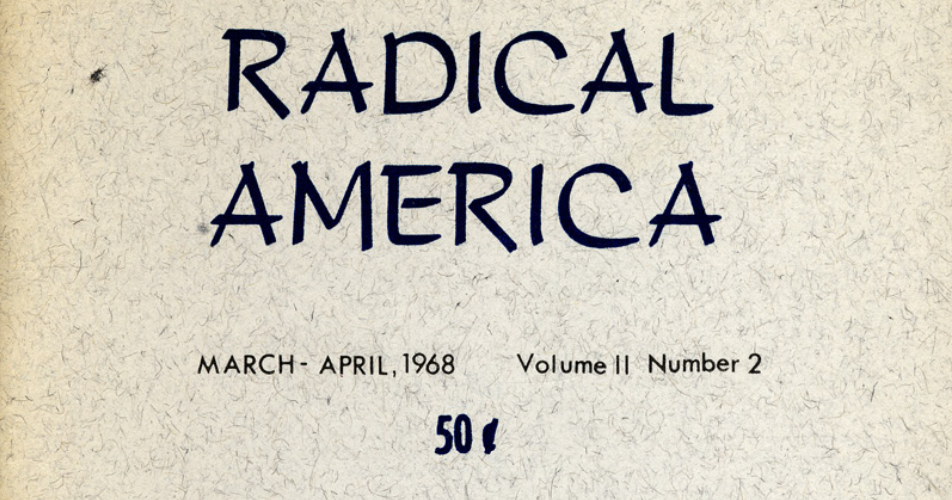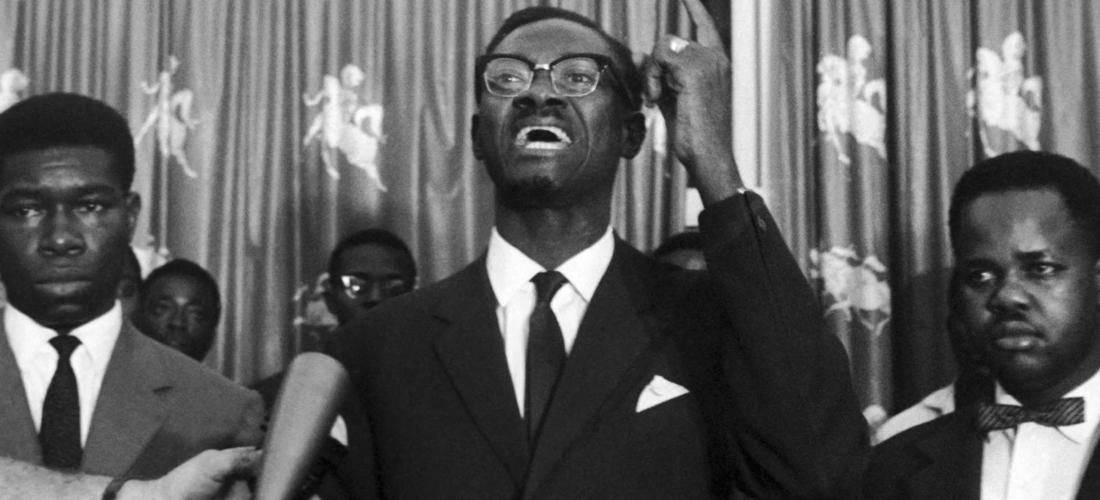“Mobilizing the Masses for the Invasion” was a speech given to workers prior to the Bay of Pigs invasion by Che Guevara in 1961. The speech heavily focused on Latin American solidarity against US impealism. Che Guevara was a Marxist revolutionary in Cuba who was a prominent figure in the fight against imperalism and capitalism. A guerilla leader, held prominent positions in the government after the Cuban Revolution. He was executed in 1967 at age 39 in Bolivia.
Author: Matilda
Heartbreak: The Political Memoir of a Feminist Militant (2002)
1990-2010, Date, Defining the Enemy, History/Theory, Patriarchy, Subjectives of Refusal, Theory, Women“Heartbreak: The Political Memoir of a Feminist Militant” is the autobiography of radical feminist Andrea Dworkin. Though Dworkin also wrote short stories and novels, she was best known for her non-fiction feminist writings. She covered all topics within radical feminism, with a strong emphasis on being anti-pornography. The bulk of her feminist analysis with through the lens of sexual violence and in the context of the lives of specific well-known individuals.
PLO Information Bulletin (December 1980)
1946-1989, Colonized, Date, Subjectives of RefusalThe PLO regularly published information bulletins almost monthly. This issue is the December 1980 bulletin with a cover which shows a demonstration in solidarity with Palestine in Washington.
Committees for Solidarity with the Palestinian Revolution (1969)
1946-1989, Colonized, Date, Subjectives of Refusal“Committees for Solidarity with the Palestinian Revolution” was a 1969 pamphlet published by the Democratic Popular Front for the Liberation of Palestine. The pamphlet included interviews with leaders, aims for the DFLP, and two militant operations in the works.
The Palestinian Revolution: The Right to Self-Determination and the Independent State (1977)
1946-1989, Colonized, Date, Subjectives of Refusal“The Palestinian Revolution: The Right to Self-Determination and the Independent State” was a 1977 publication by the Democratic Front for the Liberation of Palestine. The publication was a collection of infromation and messages regarding the fight for Palestinians’ right to self-determination in the context of the occupation.
The Struggle of Palestinian Women (1975)
1946-1989, Colonized, Date, Subjectives of Refusal, Women“The Struggle of Palestinian Women” was a 1975 study published by the Palestine Liberation Organization’s (PLO) research center. It explains the emotional and physical struggle and resistnace of Palestinian women under the occupation.
“Political and Armed Struggle” Al Fatah (1974)
1946-1989, Colonized, Date, Subjectives of Refusal“Political and Armed Struggle” was a pamphlet published in 1974 by Al-Fatah. This pahmplet explains the organization, aims, and tactics ofthe party. It illustrates the tie between armed and political struggles against oppression. Al Fatah is the largest faction of the Palestine Liberation Organization (PLO). The Fatah party is a social democratic party following a Palestinian nationalism ideology. The party advocates for a secular, two-state solution.
Palestinian Children: The Generation of Liberation (1970)
1946-1989, Colonized, Date, Subjectives of Refusal“Palestinian Children: The Generation of Liberation” is a sociological study by Bassem Sirhan, published by the Palestine Liberation Organization’s (PLO) research center in 1970. The study focused on the liberation tactics used by Palestinian children against the occupation.
“Two Military Operations in the Heart of the Beast” Democratic Palestine (1984)
1946-1989, Colonized, Consciousness Raising, Date, Subjectives of Refusal, Tactics of Disruption“Democratic Palestine” was a publication started in 1979 with the intention of cultivating solidarity among all global struggles against imperialism in the context of Palestine. This issue, “Two Military Operations in the Heart of the Beast”, was split into six sections; Palestine, Jordan, Lebanon, Arab World, World, and Culture.
The National Liberation Movement Al-Fateh (1960s/70s)
1946-1989, Colonized, Date, Defining the Enemy, Subjectives of RefusalThis document is an outline to familiarize the public with the demands and organization of Fateh, a political party within the Palestine Liberation Organization (PLO) advocating against the occupation of Palestine. This document has a table of contents, which divides the pamphlet by introduction, followed by the history of the occupation, then the evacuation of Palestinians from the land, leading to the emergence of Al-Fateh as a party. It then goes out to distinguish the aims of the party, their positions, and what lies in their future.
Revoultion Until Victory (1970s)
1946-1989, Colonized, Date, Subjectives of Refusal“Revolution Unitl Victory” was most likely published in the 1970s, and is a pamphlet which outlines the demands of Palestinians. It includes their intents and achievements, and defines terms such as Zionism and decolonization in the context and Palestine and Israeli. Fateh, whichmore formerly goes by the Palestinian National LIberation Movement, is the largest faction of the Palestine Liberation Organization (PLO). The Fateh party is a social democratic party following a Palestinian nationalism ideology. The party advocates for a secular, two-state solution.
bell hooks – Feminism is for Everybody (2000)
1990-2010, Black, Date, Defining the Enemy, History/Theory, Patriarchy, Subjectives of Refusal, The Bourgeoisie, Theory, White Supremacy, Women, Workersbell hooks is a feminist, professor, and activist. In 2000, she published “Feminism is for Everybody”. Key to her politics and feminist philosophy is that the overarching “enemy”/structure to dismantle is the “white suprmacist capitalist patriarchy”. She intentionally does not capitalize her name so that the main focus of her writing is never her name, but rather, the content of her writings/speeches.
Complete Guide To Ending The Fur Industry (2020)
2011-Present, Date, Disruptive Spaces, Sabotage/Ecotage, Tactics of Disruption, The 'Natural World'The Animal Liberation Front (ALF) is an animal rights group that was form in 1975, with the intention to end animal cruelty and exploitation. ALF is a nonviolent group, operating primarly underground by raiding plants with animals to bring the animals to safehouses. Despite this, they are on the FBI’s terrorist list. This guide was published in 2020 and contains the contact information of different fur plants around the United States. The ALF has defined the fur industry as extremely problematic and violent for and towards animals.
Fidel Castro – Plan for the Advancement of Latin America (1959)
1946-1989, Date, Defining the Enemy, Imperialism, Latino, Subjectives of Refusal, The Bourgeoisie“Plan for the Advancement of Latin America” was a speech given in Buenos Aires, Aregentina, in 1959, by Cuban Prime Minister Fidel Castro. The plan began with an outline of the literacy and life expectancy differences between Latin American countries and North American countries. It was then followed by a plan to unify the Latin American countries in their battle against Northern Hemisphere colonialism.
Manifesto of the Fast Food Worker – Socialist Alternative (U.S.) (2003)
1990-2010, Date, Defining the Enemy, Disruptive Spaces, Privatization, Strike, Subjectives of Refusal, Tactics of Disruption, The Workplace, WorkersThe Manifesto of the Fast Food Worker was published in 2003 by U.S. based group, the Socialist Alternative. This piece is broken into an introduction, the history and economics of the fast food industry, the treatment of its workers, and their demands and organizing strategy, ultimately demanding for socialism and blaming capitalism.
“As members of Socialist Alternative, a democratic socialist group active in the Seattle/Tacoma area, we have been involved from the beginning in helping organize the union drive at Pizza Hut. Our aims were identical with its workers: to attempt to enable it to be as strong and powerful as possible.”
Power Anywhere Where There’s People! (1969)
1946-1989, Authority, Black, Date, Defining the Enemy, Imperialism, Self Institution, Subjectives of Refusal, Subjects Redefined, Tactics of Disruption, White SupremacyThe Black Panther Party was founded in Oakland, California, in 1966, and originally was called The Black Panther Party for Self-Defense. It was a militant, leftist group in support of Black Liberation. Member Fred Hampton’s “Power Anywhere Where There’s People” speech was delivered in 1969, and was given when BPP founder Huey P. Newton was in jail and member Eldridge Cleaver had to go underground because of the FBI’s continuing mission against Black Liberation groups, COINTELPRO. The speech was intended to be motivational and to aid in continuing to garner support.
“You know a lot of us go around and joke ourselves and believe that the masses have PhD’s, but that’s not true. And even if they did, it wouldn’t make any difference. Because with some things, you have to learn by seeing it or either participating in it. And you know yourselves that there are people walking around your community today that have all types of degrees that should be at this meeting but are not here. Right? Because you can have as many degrees as a thermometer. If you don’t have any practice, they you can’t walk across the street and chew gum at the same time.”
In Defense of Self Defense (1967)
1946-1989, Authority, Black, Date, Defining the Enemy, Disruptive Spaces, Subjectives of Refusal, Urban Spaces, White SupremacyThe Black Panther Party was founded in Oakland, California, in 1966, and originally was called The Black Panther Party for Self-Defense. It was a militant, leftist group in support of Black Liberation. Huey P. Newtown, one of the founders of the Black Panther Party, published “In Defense of Self-Defense” to justify the party’s main goal, which was “copwatching”, in which members would open carry weapons and patrol neighborhoods and police brutality.
Statement to the Red Aid Teach-In (1972)
1946-1989, Authority, Consciousness Raising, Date, Defining the Enemy, Disruptive Spaces, Tactics of Disruption, Urban SpacesBetween 1970 and 1998, the Anti-Fascist, Anti-Capitalist, Anti-Imperialism, Communist leftist militia The Red Army Faction was labeled as a terrorist organization in first West Germany, and then unified Germany. Ulrike Meinhof was one of the group’s founders, a journalist who eventually went underground and wrote most of the statements sent out by the RAF. In “Statement to the Red Aid Teach-In”, she speaks directly to “comrades” who have yet to publicly support the RAF, urging them to do so.
“Dare to struggle; dare to win! Attack and smash the power of imperialism! It is the duty of every revolutionary to make the revolution! We call on all militants in the Federal Republic to make all American establishments targets of their attacks in their struggle against U.S. imperialism!”
Andreas Baader: Letter to the Press (1972)
1946-1989, Authority, Date, Defining the Enemy, Disruptive Spaces, Students, Subjectives of Refusal, Tactics of Disruption, Urban Spaces, WorkersBetween 1970 and 1998, the Anti-Fascist, Anti-Capitalist, Anti-Imperialism, Communist leftist militia The Red Army Faction was labeled as a terrorist organization in first West Germany, and then unified Germany. One of the founders, Andreas Baader, published this “Letter to the Editor” in 1972 which reminded the public of the RAF’s goals and explained that they had no intentions of turning themselves in, as at this point they had gone underground.
The Urban Guerilla Concept (1971)
1946-1989, Authority, Date, Defining the Enemy, Disruptive Spaces, Students, Subjectives of Refusal, Tactics of Disruption, Urban Spaces, WorkersBetween 1970 and 1998, the Anti-Fascist, Anti-Capitalist, Anti-Imperialism, Communist leftist militia The Red Army Faction was labeled as a terrorist organization in first West Germany, and then unified Germany.”The Urban Guerilla Concept” was a document published by the organization in 1971 drawing parallels between their use of guerilla warfare and that of international liberation movements, in hopes to justify their tactics and display solidarity.
“Some comrades have already made up their minds about us. For them, it is the “demagoguery of the bourgeois press” that links these “anarchist groups” with the socialist movement. In their incorrect and pejorative use of the term anarchism, they are no different than the Springer Press. We don’t want to engage anyone in dialogue on such a shabby basis.”
The Masses’ Struggle is the Beginning of the People’s Armed Struggle! (1977)
1946-1989, Date, Tactics of DisruptionIn 1973, a military coup forcefully removed democratically elected President Salvador Allende, replacing him with military dictator Augosto Pinochet. Under his military all left-wing movements were repressed and ended the 40 year reputation Chile had for upholding democratic elections. Pinochet was supporting by United States President, Nixon, and his rise to power was supported by the CIA. This document is an interview with Fanny Zulema, a resistence fighter in Chile who had been imprisoned shortly after the coup because of their participation in the People’s Front, a leftwing movement. In this interview, they recount their time in prison and the tortures they faced under Pinochet’s military dictatorship.
Ten Public Resolutions Adopted by the National Conference of the Revolutionary Communist Party of Chile (1977)
1946-1989, Date, Defining the Enemy, Imperialism, Privatization, Subjectives of Refusal, The Bourgeoisie, WorkersIn 1973, a military coup forcefully removed democratically elected President Salvador Allende, replacing him with military dictator Augosto Pinochet. Under his military all left-wing movements were repressed and ended the 40 year reputation Chile had for upholding democratic elections. Pinochet was supporting by United States President, Nixon, and his rise to power was supported by the CIA. In this document, the Revolutionary Communist Party of Chile, which was founded in 1966 when it was kicked out of the Communist Party of Chile, outlined their ten new resolutions.
Indiana University Students for a Democratic Society: Collection of Newsletters (1965)
1946-1989, Date, Disruptive Spaces, Institutions, Students, Subjectives of Refusal, UncategorizedDuring the 1960s, Students for a Democratic Society (SDS) as a national organization had chapters at over 300 universities. The organization lasted unitl 1969, until it ultimately split due to disagreements within regarding revolutionary actions. Here is a collection of newsletters distributed by the Indiana University chapter of SDS in 1965.
Description for this block. Use this space for describing your block. Any text will do. Description for this block. You can use this space for describing your block. Description for this block. Use this space for describing your block. Any text will do. Description for this block. You can use this space for describing your block.
Malcolm X Liberation University: Collection of News Articles
1946-1989, Black, Date, Defining the Enemy, Disruptive Spaces, Institutions, Subjectives of Refusal, White SupremacyIn October of 1969, the Malcolm X Liberation Univeristy was founded byHoward Fuller and other prominent Black activists. The creation of the university was inspired by Black Nationalism and Pan-Africanism, of which Malcolm X was a prominent leader, hence the name of the university. The university was in North Carolina, and lasted until 1973, because of its difficulty to recieve funding due to its political nature. This document is a collection of various newspaper articles regarding the university.
Stanford “Disorientation Guide” (2005)
1990-2010, Authority, Defining the Enemy, Patriarchy, Students, Subjectives of Refusal, White SupremacyPublished in 2005 by student activists, this Stanford University “Disorientation Guide” did an in depth analysis of the history of Standford Unviersity in relation to racism, sexism, and capitalism.
A Woman’s Guide to Stanford (1986)
1946-1989, Consciousness Raising, Date, Defining the Enemy, Patriarchy, Students, Subjectives of Refusal, Tactics of Disruption, WomenThe Women’s Guide to Stanford Collective was an organization of women at Stanford University who would yearly publish handbooks of what were essentially survival guides to being a woman at the university. Topics covered were sexism in the classrooms, sexism in residential and social life, and managing being a woman overall at a new place. This edition of A Woman’s Guide to Stanford included excerpts written by women of color and women of different sexualities on their experiences at the university.
Stanford “Reorientation Guide” (2009)
1990-2010, Date, Disruptive Spaces, Institutions, Students, Subjectives of RefusalPublished in 2009 by student activists, this Stanford University “Reorientation Guide” did an in depth analysis of the history of Stanford University in relation to racism, sexism, and capitalism.
The history of Stanford University contains many parts. The purpose of this guide is to tell a part of the story and our history that isn’t often heard. As Stanford students, we are often told that we can change the world and make it a better place, if we try hard enough. Well, we can also make Stanford a better place. The history of student activism at this school is incredibly rich. As students, we have a degree of power and that power can be (and has been) used to lead to positive change, both on our campus and in the local community.
Port Huron Statement (1962)
1946-1989, Authority, Date, Defining the Enemy, Disruptive Spaces, Imperialism, Institutions, Students, Subjectives of Refusal, The HomeThe Port Huron Statement was published in 1962 at a United Workers Retreat in Port Huron, Michigan. It was the first time Students for a Democratic Society gathered from across the nation, and became the group’s manifesto. SDS were considered a prominent organization within the New Left.
As students for a democratic society, we are committed to stimulating this kind of social movement, this kind of vision and program in campus and community across the country. If we appear to seek the unattainable, as it has been said, then let it be known that we do so to avoid the unimaginable.
The Ballot or the Bullet (1964)
1946-1989, Black, Date, Defining the Enemy, Subjectives of Refusal, White SupremacyIn “The Ballot or the Bullet”, civil rights activist and Black Nationalist Malcolm X spoke to Black Americans, encouraging them to vote if they had the ability to. In this speech, however, he noted that if the United States government continued to deny them equal rights, Black Americans should consider armed resistance, hence, the ballot, or the bullet.
Lyndon B. Johnson is the head of the Democratic Party. If he’s for civil rights, let him go into the Senate next week and declare himself… Tell him, don’t wait until election time. If he waits too long, brothers and sisters, he will be responsible for letting a condition develop in this country which will create a climate that will bring seeds up out of the ground with vegetation on the end of them looking like something these people never dreamed of. In 1964, it’s the ballot or the bullet.
The Master’s Tools Will Never Dismantle the Master’s House (1984)
1946-1989, Consciousness Raising, Date, Defining the Enemy, Patriarchy, Subjectives of Refusal, Tactics of Disruption, White Supremacy, WomenIn 1984, In 1985, feminist, civil rights activist, and librarian Audre Lorde published “The Master’s Tools Will Never Dismantle the Master’s House”. The essay argued for the dismantling of the current system, alluding to white supremacy, patriarchy, and capitalism, and argued that true reform will never be sufficient nor possible if it is under the same “house” which caused the oppression in the first place.
Advocating the mere tolerance of difference between women is the grossest reformism. It is a total denial of the creative function of difference in our lives. Difference must be not merely tolerated, but seen as a fund of necessary polarities between which our creativity can spark like a dialectic.
USA Communist Party: A Manual on Organization (1935)
1840-1945, Date, Defining the Enemy, Disruptive Spaces, Privatization, Strike, Subjectives of Refusal, Tactics of Disruption, The Bourgeoisie, The Workplace, WorkersIn 1935, The Communist Party of the USA published “A Manuagl on Organization”. The document was divided by it’s preface, chapter 1 regarding party fundamentals, chapter 2 on basic principles of the party’s organization, chapter 3 on the party’s structure and function, chapter 4 outlining party membership, and chapter 5 discussed the rules for the potential of party disciplinary cases. The Communist Party of The United States was founded in 1919 and currently has its headquarters in New York City.
CPUSA – How Class Collaboration Works (1920s)
1840-1945, Consciousness Raising, Date, Defining the Enemy, Disruptive Spaces, Strike, Subjectives of Refusal, Tactics of Disruption, The Bourgeoisie, The Workplace, WorkersIn the 1920s, the Communist Party in the USA published a pamphlet collection titled The Little Red Library. Written by Bertram D. Wolfe, communist and scholar, “How Class Collaboration Works”, was a Lenin inspired pamphlet explaining and providing a framework for raising class consciousness.
I Am Your Sister: Black Women Organizing Across Sexualities (1985)
1946-1989, Black, Consciousness Raising, Date, Defining the Enemy, History/Theory, Patriarchy, Subjectives of Refusal, Tactics of Disruption, Theory, White Supremacy, WomenIn 1985, feminist, civil rights activist, and librarian Audre Lorde published “I Am Your Sister: Black Women Organizing Across Sexualities”. The essay was centered around organizing black women in the fight against patriarchy by uniting women of all sexualities.
“Student Slain” Flyer (1967)
1946-1989, Authority, Date, Defining the Enemy, Students, Subjectives of RefusalIn 1967, student Benno Ohnesorg was killed at a protest against the Shah of Iran visiting Germany. Shocked by his killing by the police, the German Social Democratic Student Association (SHB) released this flyer, condemning the violence of the state
From Protest to Resistance (1968)
1946-1989, Authority, Date, Defining the Enemy, Disruptive Spaces, Students, Subjectives of Refusal, Tactics of Disruption, Urban Spaces, WorkersPublished by leftist journalist Ulrike Meinhof, “From Protest to Resistance” aims to inspire protestors to take up more forceful resistance against the right and the state.
The Antiauthoritarian Manifesto of the Situationist Avant Garde (1961)
1946-1989, Authority, Date, Defining the Enemy, Disruptive Spaces, Institutions, Subjectives of Refusal, Subjects Redefined, WorkersThe Situationist International was an international organization that consisted of social revolutionaries who were also avant-garde theorists, artists, and scholars. Strongly inspired by communism, class consciousness, and internationalism, they published a manifesto in January 1961 denouncing the reinstitution of respect for the bourgeois class, and proposed doing so by using creativity, art, and the rejection of this respectability.
A Terrorist Call for “Building a Red Army” (1970)
1946-1989, Authority, Date, Defining the Enemy, Imperialism, Sabotage/Ecotage, Students, Subjectives of Refusal, Tactics of Disruption, The Bourgeoisie, Urban Spaces, Women, WorkersBetween 1970 and 1998, the Anti-Fascist, Anti-Capitalist, Anti-Imperialism, Communist leftist militia The Red Army Faction was labeled as a terrorist organization in first West Germany, and then unified Germany. In this piece, published June 5th, 1970, Gudrun Ensslin, a prominent member of the group, calls for the organization of the RAF as an armed resistance group against the state.
The Redstockings Manifesto (1970)
1946-1989, Consciousness Raising, Date, Defining the Enemy, Patriarchy, Subjectives of Refusal, Tactics of Disruption, WomenFounded in 1969 in New York City, The Redstockings, short for Redstockings of the Women’s Liberation Movement, published their manifesto in 1970. The radical feminist group mobilized women primarily through the use of consciousness raising groups to draw attention to oppressive patriarchy and male supremacy.
Are Prisons Obsolete? Angela Davis (2003)
1990-2010, Date, Disruptive Spaces, History/Theory, Institutions, Theory
In 2003, Angela Davis published “Are Prisons Obsolete?”. Barely over 100 pages, the book is broken into six chapters, arguing for the abolition of prisons. The first chapter outlines the differences between prison reform and prison abolition. The following two chapters explain how reform and abolition look different within the prison system. Chapter four delves into how gender aids in the structure of the prison system, chapter five describes the prison industrial complex, and chapter 6 proposes alternatives for prisons after the abolition of them. A former member of the Communist Party, author Angela Davis, a political activist, philosopher, and now professor, has published many books on feminism, capitalism, racism, and for the abolition of prisons.
The Approaching Obsolescence of Housework: A Working-Class Perspective (1981)
1946-1989, Consciousness Raising, Date, Defining the Enemy, Disruptive Spaces, History/Theory, Patriarchy, Subjectives of Refusal, Tactics of Disruption, The Home, Theory, White Supremacy, WomenIn 1981, Angela Davis Published “Women, Race, and Class”. The book analyzes the women’s liberation movement through the lens and intersection of racism and classism. Chapter 13, “The Approaching Obsolescence of Housework: A Working-Class Perspective” focuses specifically on the notion of housewives and domestic labor, and how it relates to women’s liberation. A former member of the Communist Party, author Angela Davis, a political activist, philosopher, and now professor, has published many books on feminism, capitalism, racism, and for the abolition of prisons.
Essay on Liberation by Herbert Marcuse (1969)
1946-1989, Authority, Date, Defining the Enemy, History/Theory, Self Institution, Tactics of Disruption, TheoryIn 1969, German-American philosopher Herbert Marcuse wrote “The Essay on Liberation”, an essay in which he expressed his support for liberation movements such as that in Vietnam. Marcuse drew inspiration from Marxism and was seen as a primary theorist of the New Left movement.
“The growing opposition to the global dominion of corporate capitalism is confronted by the sustained power of this dominion: its economic and military hold in the four continents, its neo colonial empire, and, most important, its unshaken capacity to subject the majority of the underlying population to its overwhelming productivity and force”
Radical America: The Guardian: From Old to New Left (1968)
1946-1989, Date, Disruptive Spaces, Institutions, Students, Subjectives of RefusalStarted by Students for a Democratic Society (SDS) in the late 1960s, Radical America was a magazine publication which focused on the many goals and updates of the specifically campus-based New Left. “The Guardian: From Old to New Left” edition of Radical America, published in April of 1968, had an emphasis on the evolution from the “old left” to the “new left”, with a focus on the differences in tactics and targets between the Old and New Left.
Congolese Independence Speech by Patrice Lumumba (1966)
1946-1989, Black, Colonized, Defining the Enemy, Imperialism, Privatization, Subjectives of Refusal, The BourgeoisieGiven by Congolese Prime Minister Patrice Lumumba shortly after the independence of the Republic of Congo in 1966, the Congolese Independence Speech was most praised for its critique of colonialism and imperialism. Within the Republic of Congo, Lumumba was praised for his outwardness against colonialism within the speech, while outside nations critiqued the honesty of it.
Ten-Point Program (1966)
Defining the Enemy, Disruptive Spaces, White SupremacyPublished in 1966 by the Black Panther Party, written by Huey Newton and Bobby Seale, “The Ten Point Program” was a statement of their goals and organization. Intended to be ten points which would guide the everyday actions of Black Panther Party members, the program was inspired by Marxist thought
Weather Underground – Prairie Fire: The Politics of Revolutionary Anti-Imperialism (1970)
1946-1989, Authority, Date, Defining the Enemy, Imperialism, Sabotage/Ecotage, Subjectives of Refusal, Subjects Redefined, Tactics of DisruptionThe accidental explosion of a Greenwich Village townhouse during a bomb-making session in 1970 left the Weather Underground– a radical left organization formed in 1969– distraught. In an attempt to reunify under their original goals at the time of formation, the group published a book, Prairie Fire: The Politics of Revolutionary Anti-imperialism. The book was intended to make a plan for organizing not just within the WU, but also with other radical left groups, and share ideologies, tactics, and lessons, all under the umbrella of anti-imperialism.



